From Data to Insights: The Transformative Power of Augmented Analytics in Business Operations
Harnessing the potential of data-driven insights to transform your business operations with augmented analytics and gain competitive advantage
Read moreAutomation in IT operations enable agility, resilience, and operational excellence, paving the way for organizations to adapt swiftly to changing environments, deliver superior services, and achieve sustainable success in today's dynamic digital landscape.
Next-generation application management fueled by AIOps is revolutionizing how organizations monitor performance, modernize applications, and manage the entire application lifecycle.
AIOps and analytics foster a culture of continuous improvement by providing organizations with actionable intelligence to optimize workflows, enhance service quality, and align IT operations with business goals.
Artificial intelligence is rapidly transforming industries, and its impact on business analytics is undeniable. AI analytics involves using artificial intelligence techniques, such as machine learning and natural language processing, to analyze data and extract actionable insights. Unlike traditional analytics, which relies heavily on human intervention and predefined models, AI analytics can process unstructured data and uncover hidden patterns and trends autonomously. This capability makes AI analytics a game-changer for businesses, enabling more accurate forecasting, personalized customer experiences, and optimized operations.
While the potential benefits are vast, implementing AI analytics comes with its own set of challenges. According to Gartner, over 80% of enterprise leaders believe that AI is a strategic opportunity for their business. Yet, only about 30% of businesses that start AI projects successfully bring them to production. This discrepancy underscores the significant challenges businesses face in implementing AI analytics.
In this blog, let’s explore these challenges and provide practical strategies to navigate them effectively.
According to a report by Gartner, by 2024, 75% of enterprises will shift from piloting to operationalizing AI, driving a five-fold increase in streaming data and analytics infrastructures.
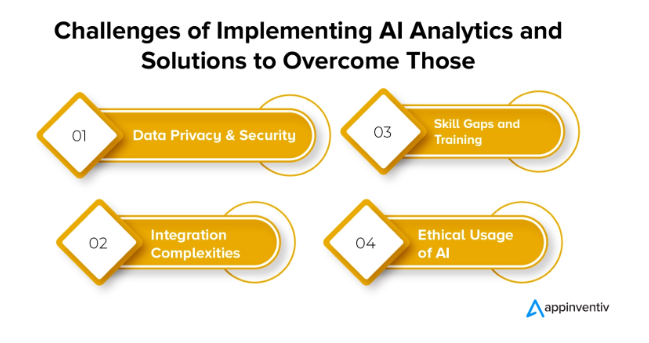
The Challenge
AI systems rely heavily on high-quality data to function correctly. Poor data quality, including inaccuracies, inconsistencies, and lack of relevance, can lead to incorrect insights and faulty decision-making. Furthermore, AI models require vast amounts of data to learn effectively, which can be a hurdle for businesses with limited data resources.
According to a Gartner study, poor data quality can cost organizations an average of $12.9 million annually.
Solution Strategies
The Challenge
Integrating AI analytics into existing IT infrastructure can be complex and disruptive. Compatibility issues, data silos, and legacy systems can hinder smooth integration.
Solution Strategies
The Challenge
Implementing AI analytics requires substantial investment in technology, infrastructure, and human resources. For many businesses, especially SMEs, these costs can be prohibitive.
Solution Strategies
The Challenge
The use of AI analytics raises significant ethical concerns, including data privacy, bias, and transparency. Compliance with regulations such as GDPR (General Data Protection Regulation) and CCPA (California Consumer Privacy Act) is critical but challenging.
Solution Strategies
The Challenge
The demand for AI expertise often outstrips supply. Many businesses struggle to find professionals with the necessary skills in machine learning, data science, and AI development. According to a LinkedIn report, there is a global shortage of over 150,000 data scientists.
Solution Strategies
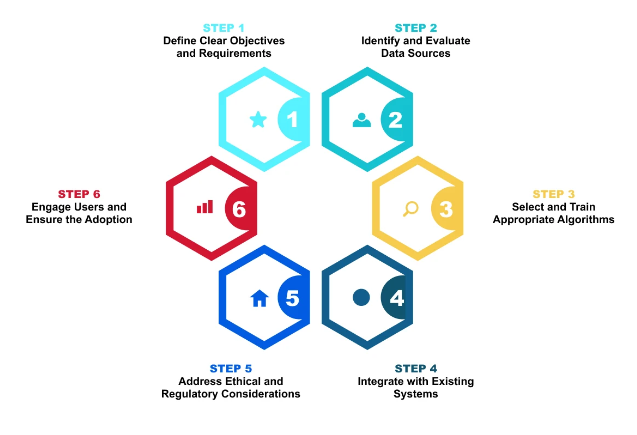
Invest in robust data management practices to ensure you have high-quality data. Implement advanced data analytics tools and establish strong data governance policies.
Promote a culture of collaboration between data scientists, IT professionals, and business leaders. Ensure that everyone understands the value of AI analytics and is committed to its success.
AI analytics is not a one-time implementation. Continuously monitor AI systems’ performance, gather feedback, and make necessary adjustments to improve accuracy and effectiveness.
AI technology is constantly evolving. Stay updated with the latest trends and advancements in AI to ensure your business remains competitive and can leverage new opportunities.
AI analytics is transforming various industries by enabling smarter, data-driven decision-making. Here are some compelling business use cases:
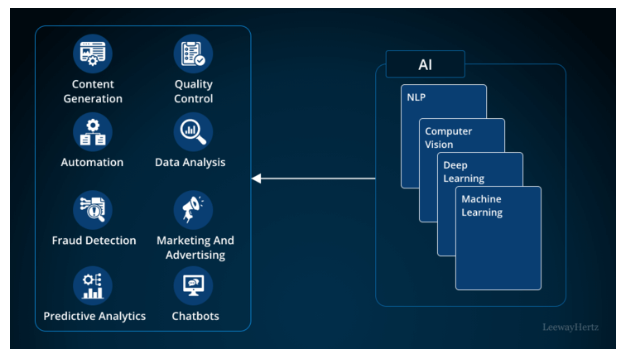
Retail giants use AI analytics to gain deep insights into customer preferences and behaviors. This data-driven approach allows them to offer personalized recommendations, improving customer satisfaction and boosting sales.
A study by Epsilon found that 80% of consumers are more likely to make a purchase when brands offer personalized experiences.
AI analytics is used for predictive maintenance. By analyzing data from sensors and machinery, AI can predict equipment failures before they occur, reducing downtime and maintenance costs.
According to McKinsey, predictive maintenance can reduce maintenance costs by 20% and unplanned outages by 50%
AI analytics detects fraudulent transactions in real time. By analyzing patterns and anomalies in transaction data, AI systems can identify and mitigate fraud more effectively than traditional methods.
According to a report by PwC, AI can improve fraud detection rates by up to 30%.
AI analytics optimize supply chain operations by analyzing data from various sources, AI helps in demand forecasting, inventory management, and route optimization, leading to cost savings and improved service levels.
According to McKinsey Digital, AI-powered forecasting can reduce errors in supply chain networks by 30 to 50%.
Implementing AI analytics in your business is a transformative journey that comes with its set of challenges. However, by understanding these challenges and adopting strategic solutions, businesses can harness the power of AI to drive innovation, efficiency, and growth. As we move towards an increasingly data-driven future, the ability to effectively implement and utilize AI analytics will be a key differentiator for businesses across industries.
At Quinnox, we understand the complexities and challenges associated with AI analytics. Our comprehensive suite of AI solutions is designed to help businesses navigate these challenges effectively. From data management and integration to ethical AI practices and scalable architectures, Quinnox provides end-to-end support to ensure your AI initiatives succeed.
Are you ready to unlock the full potential of AI analytics for your business?
Contact Quinnox today to learn how we can help you transform your business with AI analytics.

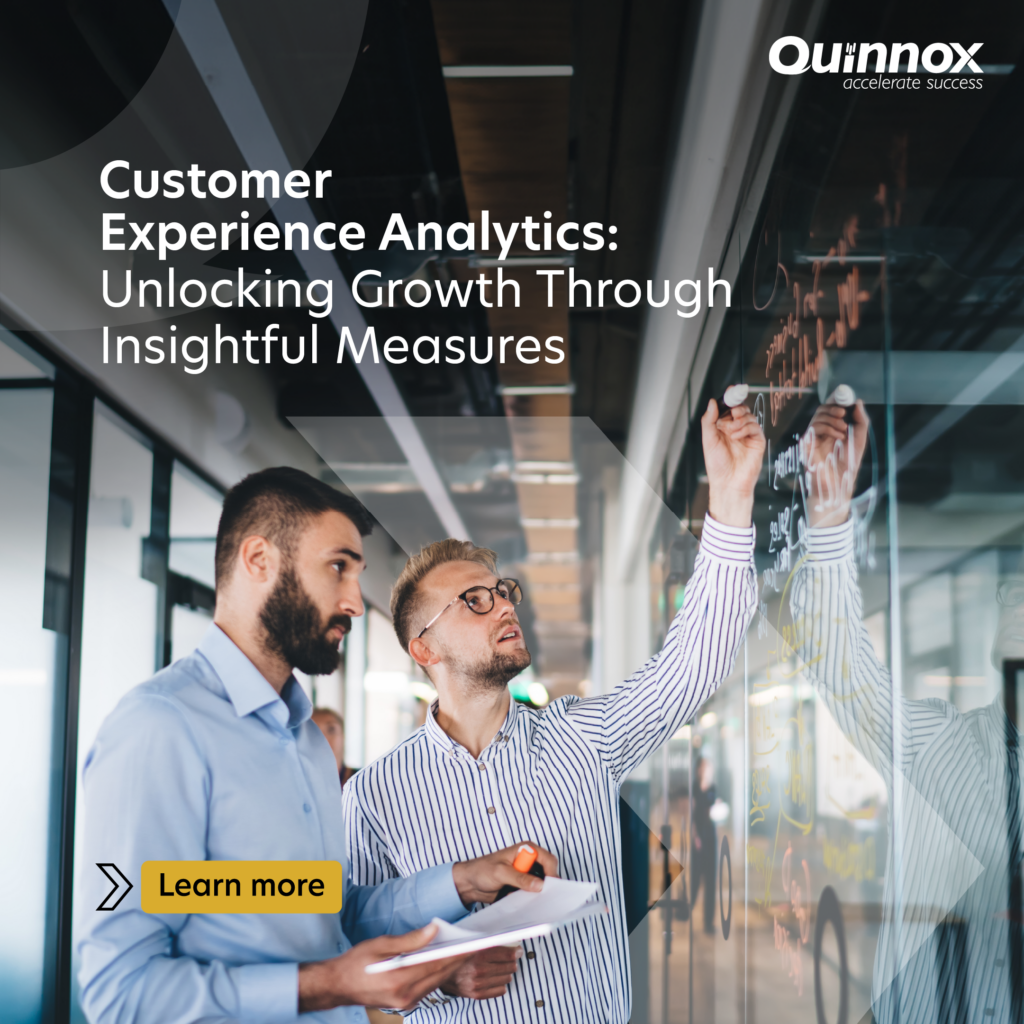

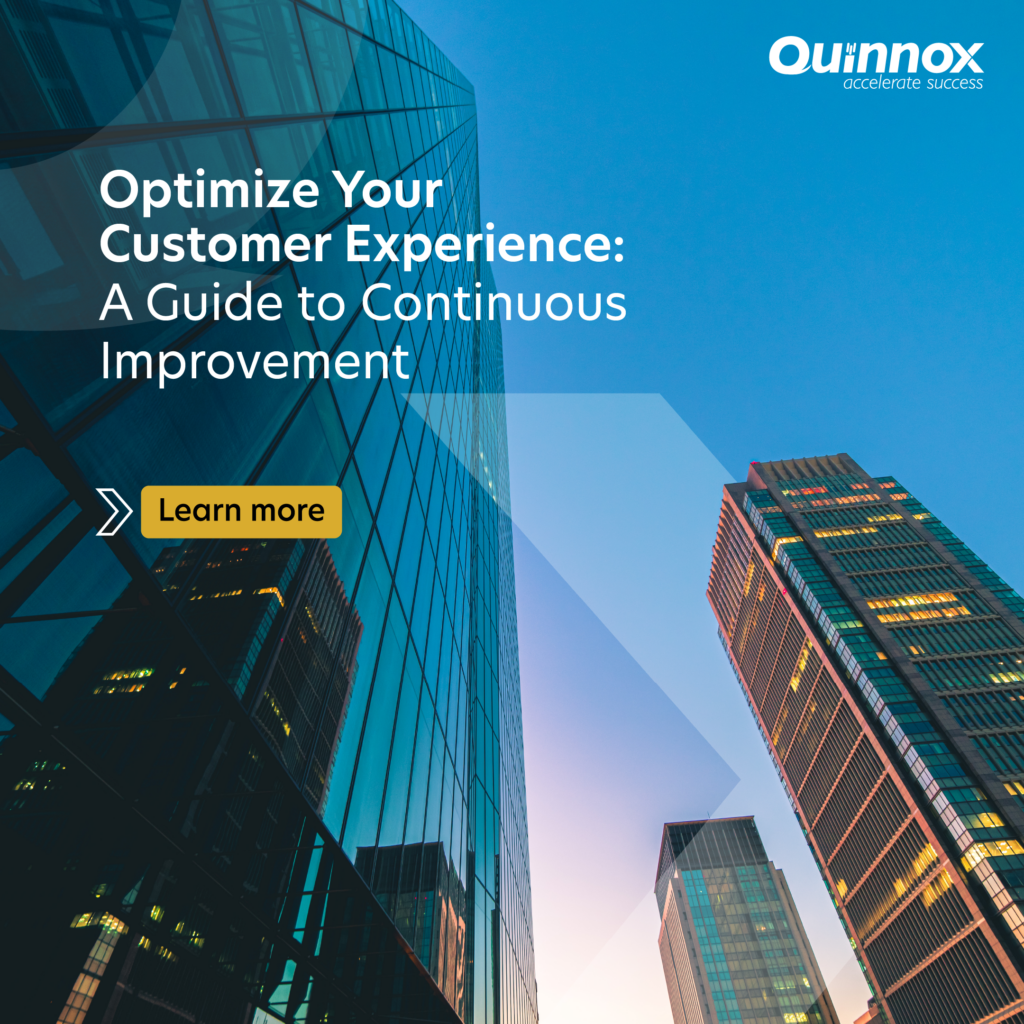
Want to know more about CX? Read interesting blogs below!
Harnessing the potential of data-driven insights to transform your business operations with augmented analytics and gain competitive advantage
Read moreSeamless IT operations with predictive analytics capabilities of AIOps can transform your incident management and prevent costly downtimes with AIOps solutions.
Read moreEmbracing cutting-edge automation technologies with top business process automation trends in 2024 and learn how hyperautomation can drive business innovation and efficiency
Read moreGet in touch with Quinnox Inc to understand how we can accelerate success for you.